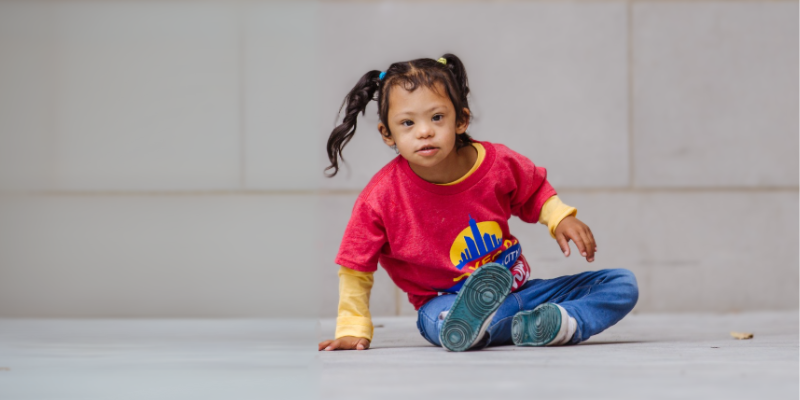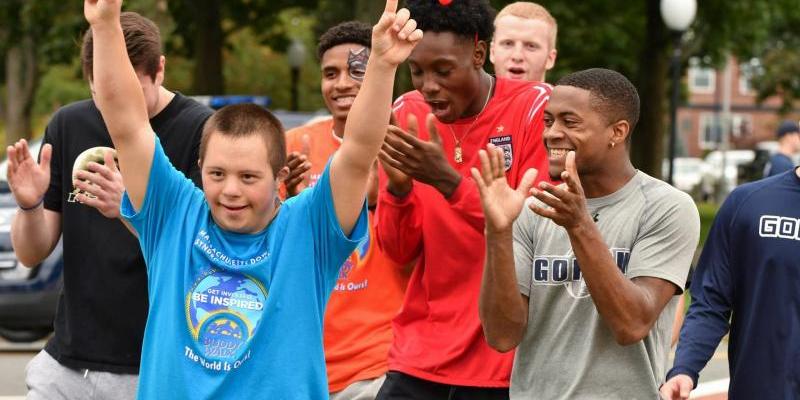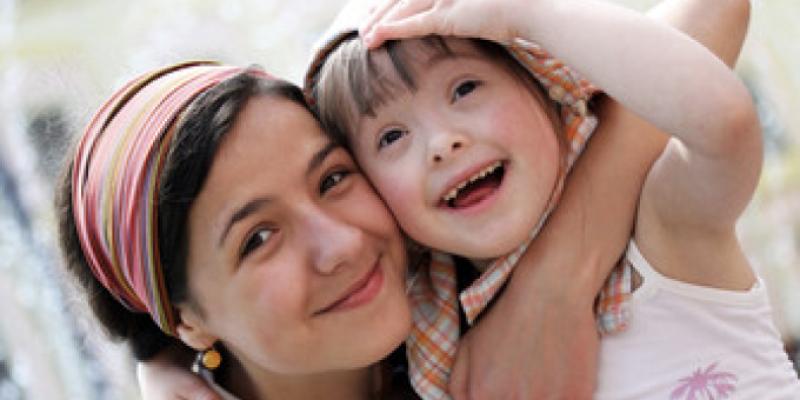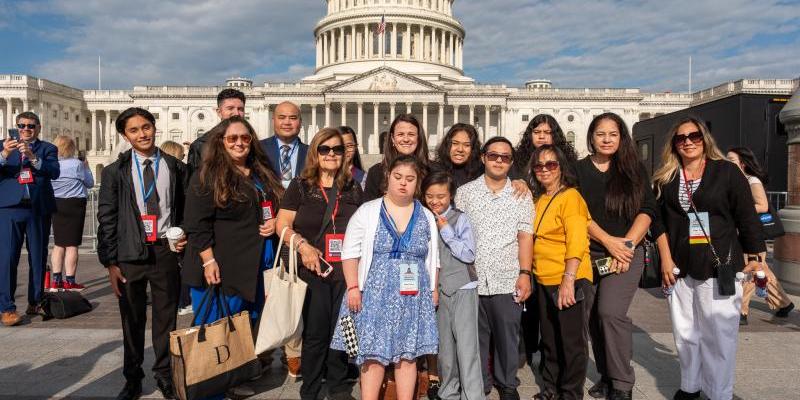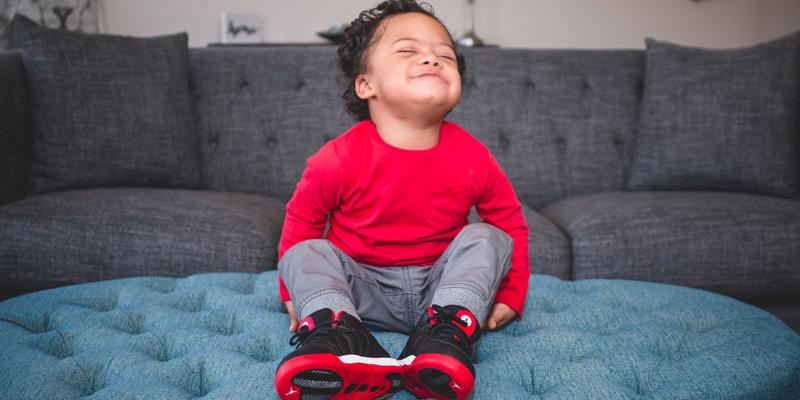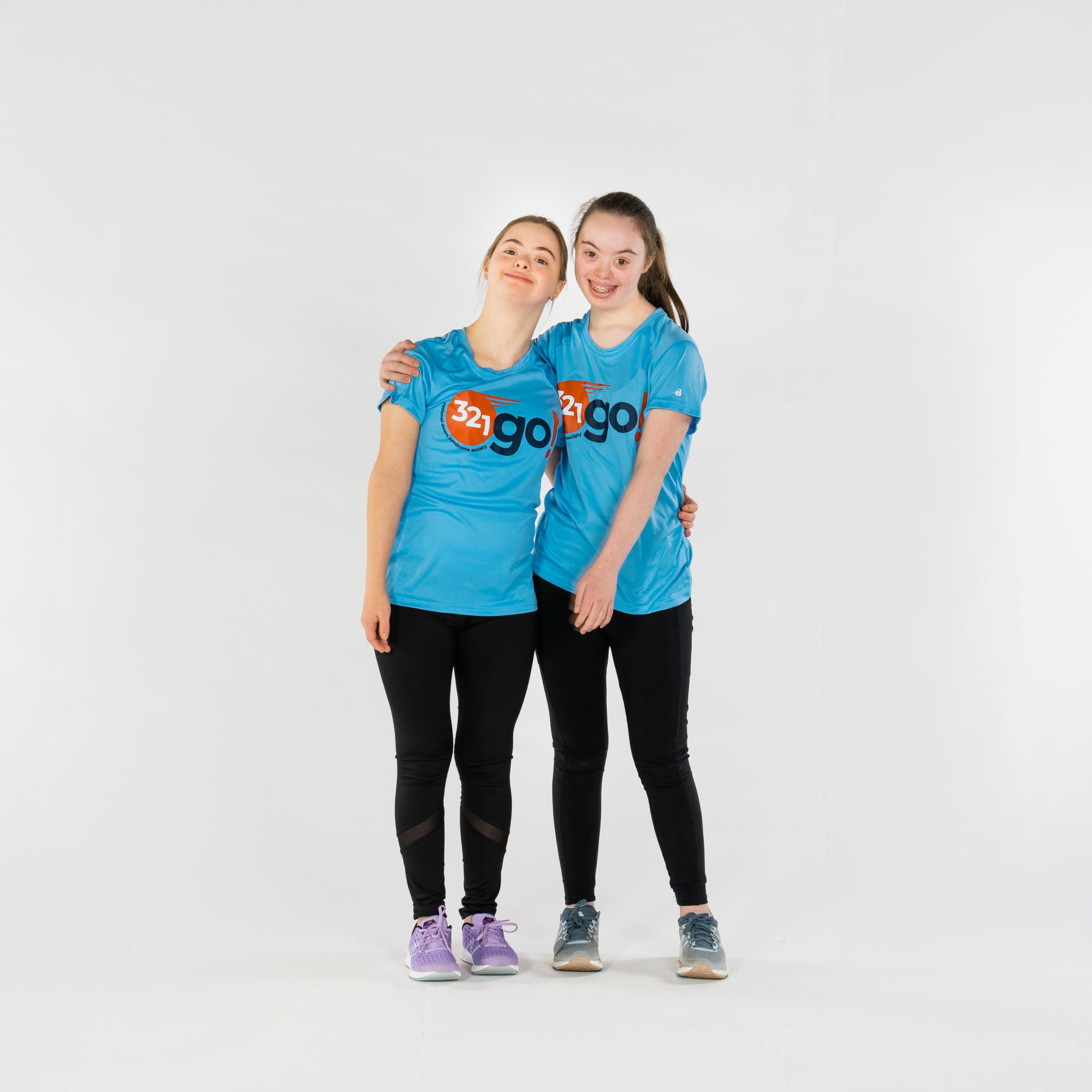
The National Down Syndrome Society (NDSS) designed the 321go! program to improve the quality of life of individuals with Down syndrome. The program equips individuals with the knowledge and skills they need to improve their health and actively engage in relationships, education, employment, and leisure opportunities.
Using a behavior change model, the foundation of the program is a set of 3 daily goals and 21 additional challenges that encourage healthy lifestyle choices in physical activity, balanced nutrition, and emotional wellness.
The three daily goals are:
- 30 minutes of physical activity every day
- 2 servings from each food group daily
- 1 emotional wellness strategy per day
To start your 321go! journey, caregivers, family members, and friends can read the Program Guide alongside their loved ones with Down syndrome and engage in healthy habits together by focusing on the 3 daily goals and tackling the 21 challenges as a team.
321go! and Quality of Life
Making healthy choices in physical activity, balanced nutrition, and emotional wellness can improve our physical and mental health. Individuals with Down syndrome experience increased rates of obesity,1 diabetes,2 Alzheimer’s disease, and certain mental health conditions like depression and anxiety.3 Lifestyle factors may help prevent these conditions and make them easier to manage if they do arise.4
Physical activity: Adults with Down syndrome are half as likely to meet federal physical activity guidelines as those without.5,6 The 321go! physical activity information is based on these guidelines to help close that gap.
Balanced nutrition: The U.S. Department of Agriculture (USDA) MyPlate model outlines daily recommended servings from the five main food groups for a balanced diet.7 The 321go! balanced nutrition resources use the MyPlate model and the Dietary Guidelines for Americans, 2020-2025 to promote healthier eating habits.8 Learn more on our Nutrition and Down Syndrome page.
Emotional wellness: 321go! is built on the National Institutes of Health (NIH) emotional wellness toolkit to support daily emotional well-being. Adults with intellectual disabilities often get too little sleep9 and rely on avoidant coping strategies.10 321go! encourages daily habits that build emotional resilience, which increases our ability to recover more quickly from stress, challenges, and setbacks.
Healthy habits do more than improve physical and mental health—they enhance quality of life, support focus, boost work and school performance, strengthen social and emotional skills, and help us feel our best now and in the future.
321go! Behavior Change Strategies
Behavior change can be hard, and 321go! uses proven strategies to help! Setting small, daily goals makes larger goals like “being healthier” more achievable. Tracking progress increases success,11 which is why 321go! includes a weekly tracker for the 3 daily goals and sleep and water trackers found in additional resources below. You can also use other tools to track goals such as wearable trackers and apps.
Healthy choices are easier and more fun with support! While promoting independence for individuals with Down syndrome, this program also encourages building healthy habits together. Caregivers, family members, and friends can join in by reading the guide alongside their loved ones, tackling challenges as a team, and modeling positive behaviors that inspire the whole family.
Resources
If you are interested in more resources to support your 321go! journey, please see our additional resources for families below. If you are an affiliate or community organization, learn more about how you can support your local community with our eight-week 321go! course below.
Frequently Asked Questions (FAQs)
I’m already involved in a fitness program. Can I still do 321go!?
Of course! 321go! is designed with flexibility to support you to live a healthy lifestyle. The 321go! program can supplement health, fitness, and sport programs you’re already involved in.
Is 321go! only for individuals with Down syndrome?
No! While the resources were designed considering the needs of individuals with Down syndrome, the health education and activities can be beneficial to everyone. This makes it easy for families and friends to participate in 321go! together.
Our local organization/program would like to offer 321go! How do we get started?
We encourage local affiliate or community organizations to promote 321go! throughout their community. Learn more about our eight-week program. Please reach out to 321go!@ndss.org to learn more about how your organization can offer the program.
What if I have dietary restrictions, like Celiac disease?
321go! encourages a balanced diet that is mindful of dietary restrictions. For example, the program guide suggests gluten free grains such quinoa or rice if you have Celiac disease. It is important to consult with a healthcare professional if you are concerned about food allergies or intolerances and to ensure that dietary changes are safe and appropriate. Learn more on our Nutrition & Down Syndrome page.
How is emotional wellness different from mental health?
Emotional wellness is the ability to understand and deal with emotions. Focusing on emotional wellness can improve our ability to understand and express emotions, maintain relationships, and practice healthy coping strategies, which can help our mental health. Emotional wellness is just one aspect of mental health. Mental health covers a broader spectrum of psychological experiences and cognitive functions, including conditions such as anxiety, depression, and obsessive-compulsive disorders. If you have concerns about your loved one’s mental health, it’s important to consult with a qualified healthcare professional. You can learn more on our Mental Health & Down Syndrome page.
Is 321go! evidence-informed?
Yes! 321go! is adapted based on the Physical Activity Guidelines for Americans,5 the Dietary Guidelines for Americans, 2020-2025,9 MyPlate,7 and the NIH Emotional Wellness Toolkit.10 321go! behavior change strategies are also evidence informed. Research suggests that social support and tracking increase likelihood of achieving goals.12,13 NDSS partnered with the Down Syndrome Association of Northern Virginia to pilot the program with 10 individuals with Down syndrome and their partners. Over eight weeks, participants showed strong engagement (attending 7 out of 8 sessions), high satisfaction, and improvements in knowledge, self-efficacy, social support, physical activity levels, and a small decrease in BMI. View the results.
Can I buy 321go! materials using my FSA/HSA or ABLE accounts?
Health Savings Accounts (HSAs) and Flexible Spending Accounts (FSAs) are both tax-advantaged accounts that help you save for qualified medical expenses. An ABLE account is a tax-advantaged savings account for individuals with disabilities. You may be able to purchase the 321go! Fitness Kit using money from these accounts. Refer to the IRS guidelines for what is eligible for FSA/HSA accounts and ABLEnow for ABLE accounts. You may need a letter of medical necessity, and it is important to save your receipts.
References
Webpage References
[1] Havercamp SM, Tasse MJ, Navas P, Benson BA, Allain D, Manickam, K. Exploring the weight and health status of adults with Down syndrome. Journal of Education and Training Studies. 2017; 5(6), 97.
[2] Aslam AA, Baksh RA, Pape SE,Strydom A, Gulliford MC, Chan LF. Diabetes and obesity in Down syndrome across the lifespan: A Retrospective Cohort Study Using UK Electron Health Records. Diabetes Care. 2022; 45(12), 2892-2899.
[3] Rivelli A, Fitzpatrick V, Chaundri S. Chicoine L, Jia G, Rzhetsky A, Chicoine B. Prevalence of mental health conditions among 6078 individuals with Down syndrome in the United States. Journal of Patient-Centered Research and Reviews. 2022; 9(1), 58-63.
[4] Centers for Disease Control and Prevention. Preventing Chronic Diseases : What You Can Do Now. May 15, 2024. Preventing Chronic Diseases: What You Can Do Now | Chronic Disease | CDC
[5] U.S. Department of Health and Human Services. Physical Activity Guidelines for Americans, 2nd Edition. Washington, DC. Physical Activity Guidelines for Americans | odphp.health.gov
[6] Shields N, Plant S, Warren C, Wollersheim D, Peiris C. Do adults with Down syndrome do the same amount of physical activity as adults without Down syndrome? A proof of principle study. Journal of Appiled Research in Intellectual Disabilities. 2018;31(3): 459-465.
[7] U.S. Department of Agriculture. ChooseMyPlate.gov. 2015. MyPlate.gov | U.S. Department of Agriculture
[8] Herrera-Quintana L, Vasques-Lorente H, Carranco Romo MJ, Flores Buitron EP, Molina-Lopez J, Moya MT, Planells E. Imbalanced dietary patterns, anthropomeric, and body composition profiles amongst adults with Down syndrome. Nutritional Neuroscience. 2022; 1-10.
[9] U.S. Department of Agriculture and U.S. Department of Health and Human Services. Dietary Guidelines for Americans, 2020-2025. 9th Edition. 2020. https://www.dietaryguidelines.gov/
[10] U.S. National Institutes of Health. Emotional Wellness Toolkit. 2022. Emotional Wellness Toolkit | National Institutes of Health (NIH)
[11] Coats JC, Coxon M, Temple VA, Butler C, Stuart-Hill L. Examining the Canadian 24-Hour movement guidelines among adults with intellectual disability: a pilot study. International Journal of Environmental Research and Public Health. 2023; 20(13), 6291.
[12] Hartley SL & MacLean WE. Coping Strategies of adults with mild intellectual disability for stress social interactions. Journal of Mental Health Research in Intellectual Disabilities. 2008; 1(2), 109-127.
[13] American Psychological Association. Frequently Monitoring Progress Toward Goals Increases Chance of Success. 2015. Frequently monitoring progress toward goals increases chance of success
[14] Latkin CA, Knowlton AR. Social Network Assessments and Interventions for Health Behavior Change: A Critical Review. Behav Med. 2015;41(3):90-97.
